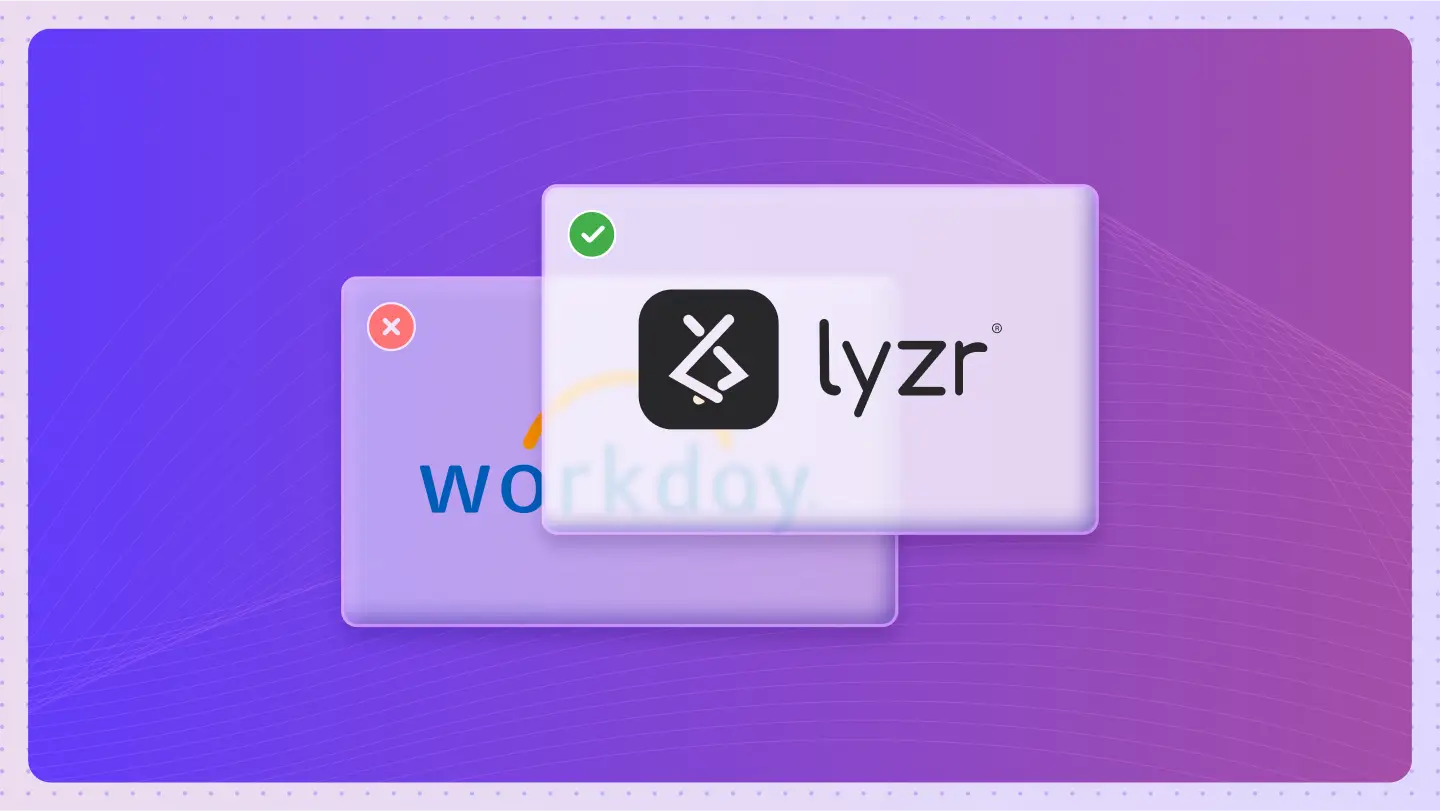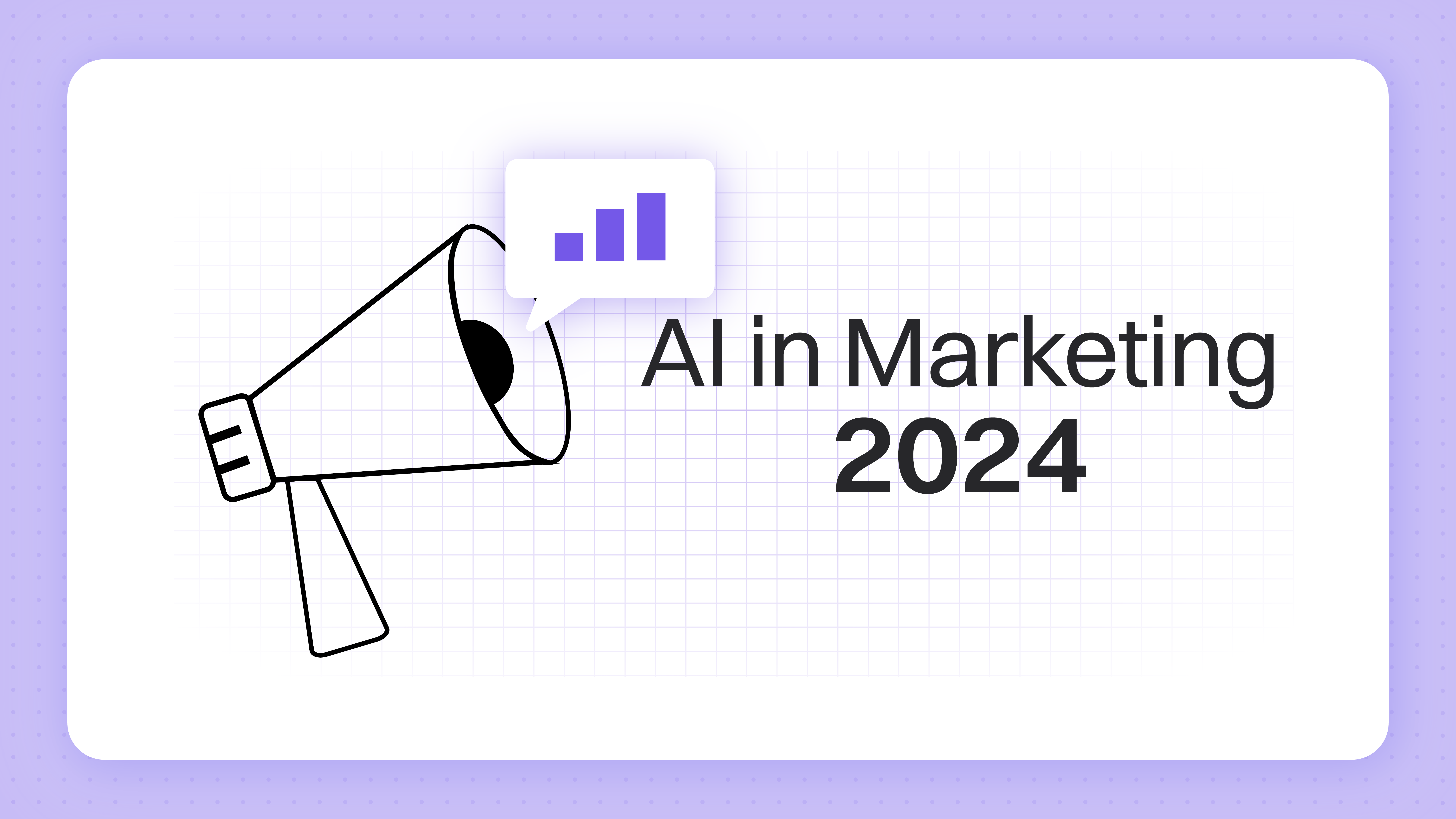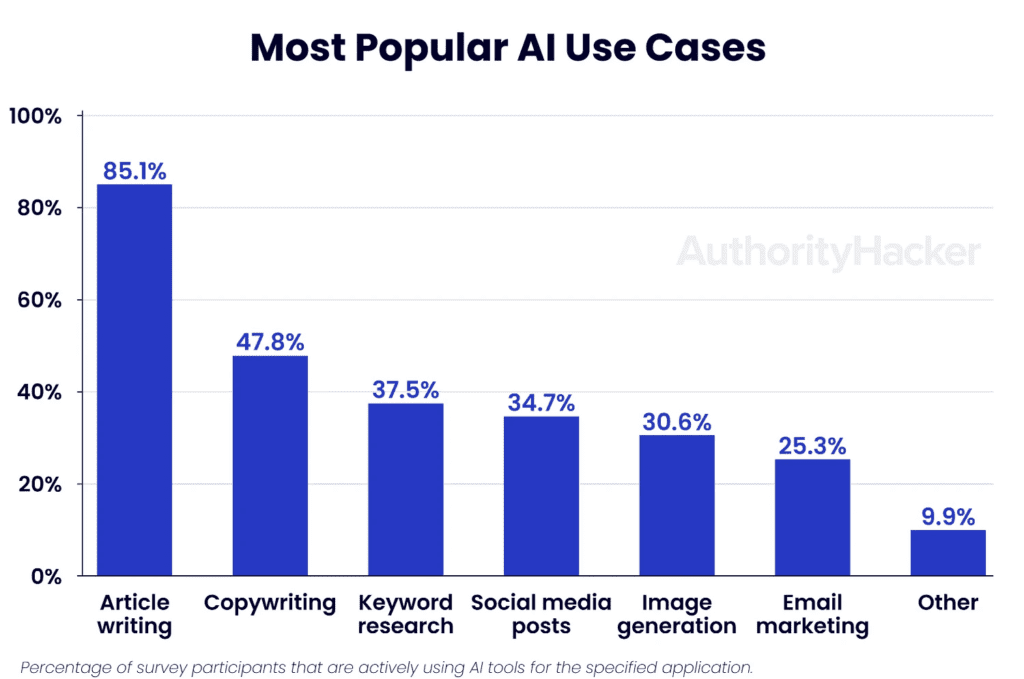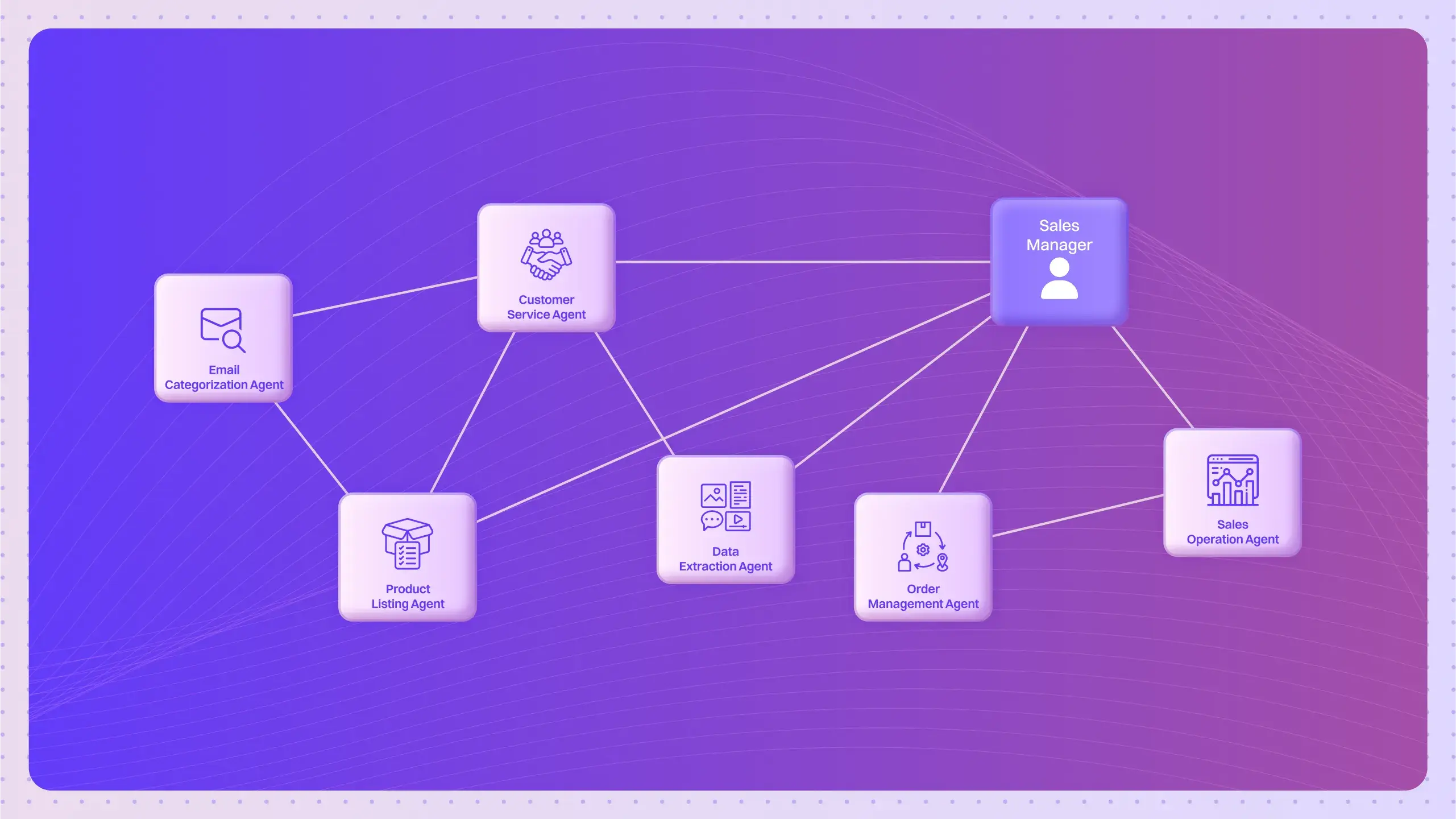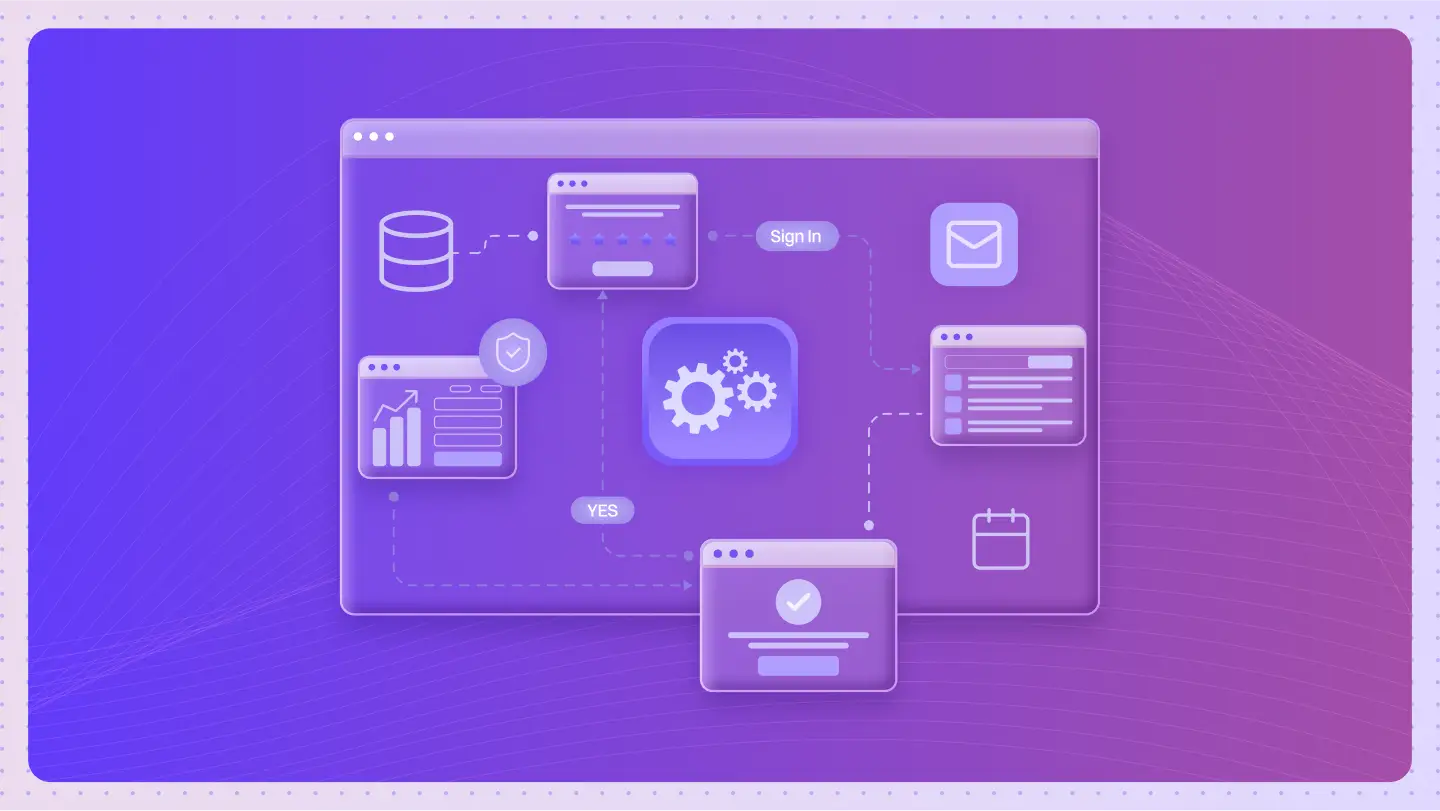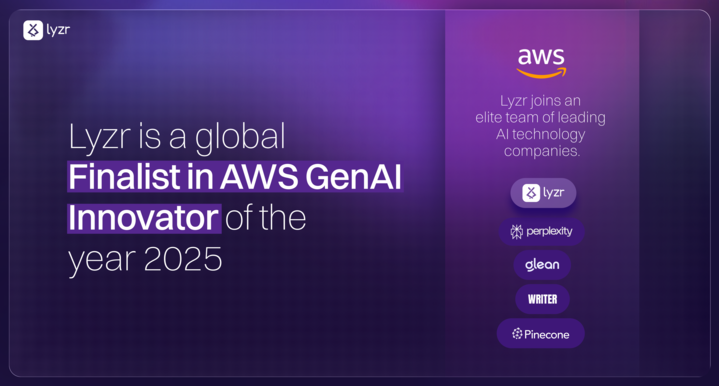Table of Contents
Toggle“Alexa, what’s the best time to send a marketing email?”
“Based on recent trends, your emails will perform best if sent between 10 AM and 12 PM on weekdays.”
This kind of response from Alexa shows how AI isn’t just about convenience—it’s providing actionable insights that make a real difference. We rely on AI, not just for reminders, but for smarter decisions in our day-to-day tasks. With 71% of people preferring voice search over typing and 62% open to using AI for better shopping experiences, it’s clear that AI is already changing how we live and work.
If AI can handle these small, everyday tasks so effortlessly, imagine what it could do for your marketing efforts. Tools like ChatGPT are already transforming digital marketing, helping businesses to generate personalized content faster and more effectively. As AI tools continue to evolve, it’s clear that AI isn’t just a trend—it’s shaping the future of marketing. So, while consumers are on board, is your marketing making the most of AI?
Understanding What is AI Marketing
AI marketing is to marketers what Google Maps is to travelers. Just as Google Maps helps you navigate unfamiliar roads, AI marketing uses advanced capabilities like data collection, analysis, natural language processing (NLP), and machine learning (ML) to guide marketers toward valuable customer insights and automate essential marketing decisions. Today, AI technologies are more widespread than ever, helping businesses to create engaging content, enhance customer experiences, and achieve precise results.
At its core, AI in marketing uses machine learning and deep learning to:
- Identify trends
- Make predictions
- Perform tasks that traditionally require human intelligence
Two Key Types of AI in Marketing
Predictive AI
Predictive AI analyzes patterns in data to forecast future outcomes. For instance, it can predict which products a customer might be interested in based on their previous purchasing behavior.
Generative AI
Generative AI creates new content—such as text or images—by learning from data. For instance, it can generate realistic images or produce human-like writing in response to a marketer’s input.
Predictive AI and generative AI work together to strengthen marketing strategies. Predictive AI analyzes historical data to offer insights, helping marketers make informed decisions. Generative AI then leverages these insights to rapidly generate personalized content at scale. By combining both, marketers can automate repetitive tasks, segment audiences more effectively, and create customized messages tailored to consumer preferences and behaviors, significantly enhancing the impact of their marketing efforts.
AI Technologies Paving the Way for Next-Gen Marketing
Artificial intelligence offers a range of features that can scale your marketing efforts. Here are some key technologies that make it possible.
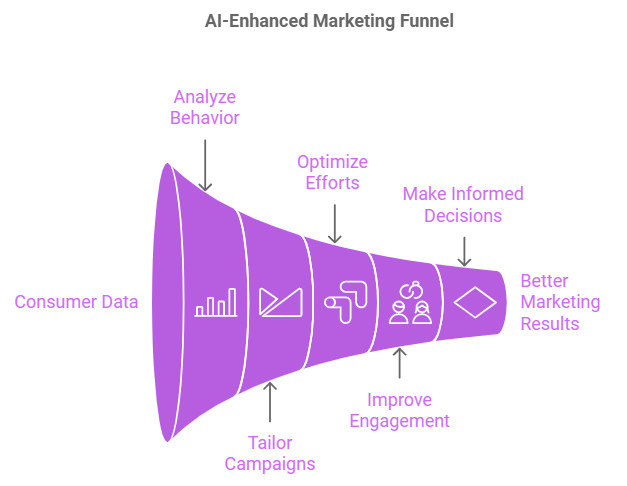
Machine Learning (ML)
Machine learning (ML) allows systems to learn and improve on their own by using neural networks. By processing large amounts of data, ML algorithms help marketers solve specific problems and gain valuable insights.
How Does ML Benefit Marketing?
- Customer Segmentation: ML can identify different customer groups based on their behaviors and preferences, helping marketers target their strategies more effectively.
- Personalized Marketing: By understanding customer needs, ML enables personalized campaigns that resonate with specific audiences.
- Predictive Analytics: ML forecasts future behaviors, helping businesses anticipate customer actions.
Large Language Models (LLMs)
Large language models, like GPT-4, assist marketing teams in creating content and managing customer interactions.
Benefits of LLMs in Marketing:
- Content Creation: LLMs can generate high-quality content for websites, social media, and email campaigns, from product descriptions to engaging articles.
- Customer Service: LLMs power chatbots that provide instant responses, improving customer engagement and satisfaction.
Natural Language Processing (NLP)
Natural language processing (NLP) enables AI marketing tools to understand human language. It analyzes everything from social media posts to customer emails.
How NLP Enhances Marketing:
- Sentiment Analysis: Brands can monitor social media to understand public opinion, identifying trends and customer emotions.
- Data Analysis: NLP analyzes large amounts of text data, such as competitor websites and product reviews, helping marketers shape their strategies.
Semantic Search
Semantic search algorithms categorize keywords into meaningful clusters, improving text analysis accuracy. This technology is essential for effective AI writing tools and SEO.
Benefits of Semantic Search:
- Identifying Customer Sentiments: Marketing teams can analyze reviews to find common themes. For instance, if many customers mention “fast delivery” and “great service,” the team can highlight these strengths in their marketing.
Named Entity Recognition (NER) and Neural Networks
NER helps AI identify critical entities within large datasets, such as influential people, places, or organizations. It can even recognize these entities when they’re misspelled, which is vital for generating knowledge graphs that reveal connections between various elements within the data.
Neural networks (NN) function similarly to the human brain by linking and remembering these data points. As neural networks continue learning, they make machine learning models more precise and insightful over time, enabling businesses to track emerging trends, recognize key influencers, and refine social marketing strategies accordingly.
Sentiment Analysis
Sentiment analysis measures customer feedback, providing valuable insights for reputation management. By analyzing social listening data, such as reviews and survey responses, sentiment analysis algorithms assign polarity scores between -1 and +1 to gauge the mood behind customer statements.
When customers discuss different aspects of a business, sentiment analysis calculates the score for each element, combining them to provide an overall sentiment of the brand. This helps businesses understand how customers perceive their offerings and assess overall performance in terms of customer satisfaction.
Why should you use Artificial Intelligence in your marketing?
AI has a wide range of applications in marketing, and we’re just beginning to tap into its full potential. Here are some ways organizations are already implementing AI in marketing:
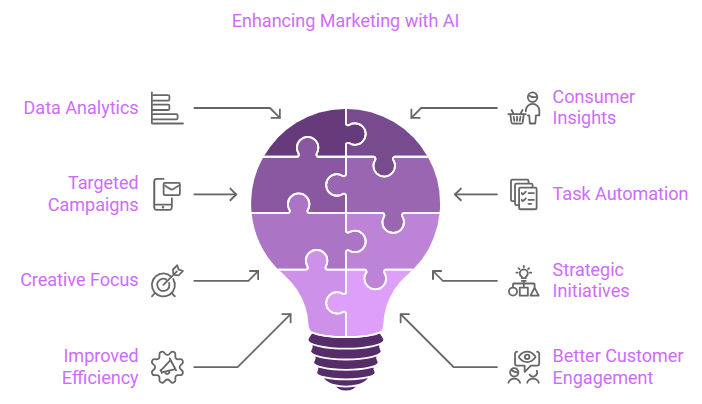
Increased ROI
The primary goal of using artificial intelligence in marketing is to improve campaign performance and increase ROI. Instead of running ineffective ads for extended periods, marketers can leverage AI for data analysis and insights, allowing them to create better marketing assets in real time. This approach saves time and money, enabling teams to work more efficiently and boost profits. Reducing staff time and production costs directly contributes to improved ROI.
AI-Driven Personalization
Today, 4 out of 5 marketers include personalization in their email campaigns. AI helps marketing teams deliver even more personalized experiences to individual customers on a larger scale.
With AI chatbots, teams can collect valuable insights about customer behavior and preferences efficiently. These insights are then used to craft targeted messages that connect with each customer.
For example, predictive hyper-personalization allows businesses to refine and enhance the customer experience based on individual needs and behaviors.
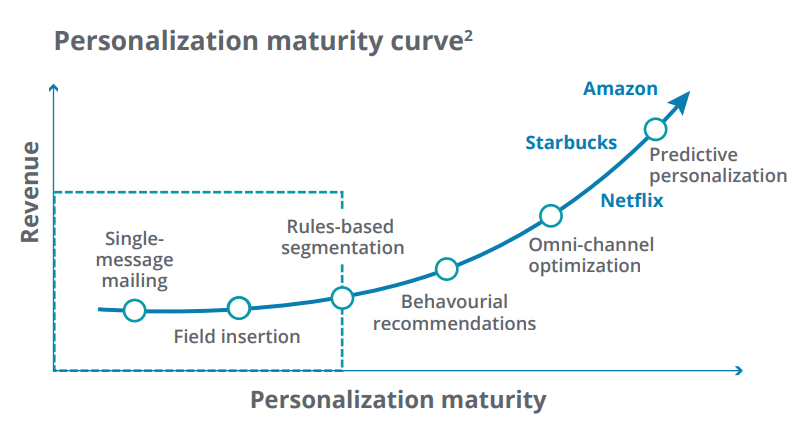
Speed and Efficiency
A group of social scientists from Harvard Business Schoolstudied the impact of ChatGPT-4 on the daily operations of a global management consulting firm.
The results showed that specialists using AI completed 12.2% more tasks, finished them 25.1% faster, and delivered 40% higher quality results compared to those who didn’t use AI.
Time savings are a significant advantage of generative AI in marketing, with two-thirds of marketers highlighting this benefit. On average, marketers report saving over three hours for every piece of content produced with AI. This efficiency allows teams to focus on more critical tasks while enhancing their brand presence.
Being first to market is a crucial competitive advantage. With the ability to pivot and launch campaigns in just days or even hours—whether for social media or digital initiatives—companies can capitalize on trends and opportunities more effectively.
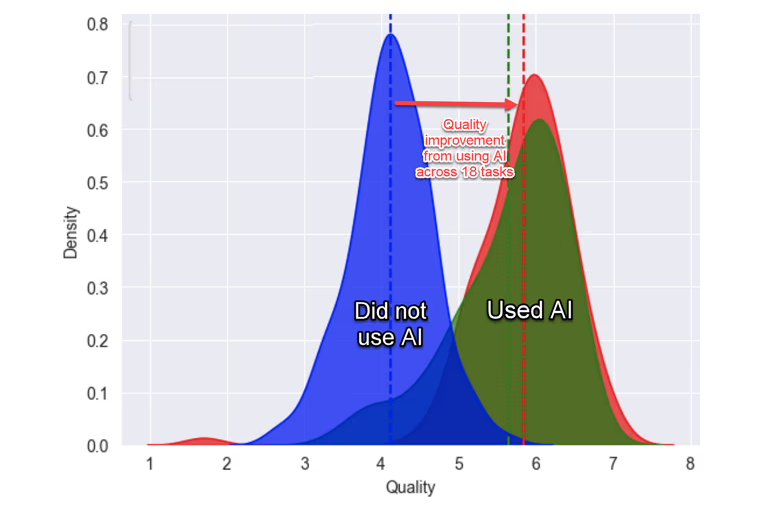
Better Customer Experience
Utilizing AI in marketing can significantly improve customer relationships. When you offer personalized content and recommendations, customers are more likely to return and make repeat purchases. Additionally, AI can identify customers at risk of churn and trigger automated marketing campaigns aimed at re-engaging them. By fostering deeper connections with customers, brands can enhance their loyalty and retention.
Data-Based Marketing Decisions
AI simplifies scaling your business by utilizing data analysis to inform decisions. By analyzing trends and predicting outcomes, businesses can create marketing assets that effectively drive sales. This data-driven decision making enables companies to adapt their strategies based on real insights, ultimately leading to more effective marketing and better overall results.
AI in Action: Key Marketing Use Cases Driving Results
According to the 2024 Global Customer Engagement Review, 99% of marketers report that their organizations are already utilizing AI. However, it goes beyond simply generating copy and creative content; they are seeking additional ways for AI to drive meaningful results for their brands. Marketers are eager to explore AI’s full potential to enhance customer engagement in several key areas:
Content Generation
With the rise of AI tools like OpenAI’s ChatGPT, businesses can now automate content creation across various formats. AI can produce blog posts, marketing copy, email campaigns, subject lines, video subtitles, make AI videos and website content—helping teams save time and resources. This allows marketers to focus on strategy while AI handles much of the content creation process, delivering targeted materials that resonate with specific audiences.
Audience Segmentation
AI helps businesses divide their customer base into specific groups based on characteristics like interests, behaviors, or demographics. This precise segmentation allows companies to better understand their audience and create personalized marketing campaigns. As a result, marketers can tailor their messages to reach the right people, improving engagement and driving better outcomes for each campaign.
Customer Service Chatbots
AI-powered chatbots are becoming a popular way to support customers throughout their journey. These bots can handle customer questions, resolve issues, and guide users through various stages of their interaction with the brand. By automating these tasks, businesses can offer quick, 24/7 support, ensuring that customers receive timely responses and improving overall satisfaction.
Programmatic Advertising
Programmatic advertising automates the buying and placement of digital ads on websites and apps. AI plays a key role here by analyzing customer data, such as browsing history and preferences, to deliver more relevant ads. This leads to higher conversion rates, as ads are shown to users who are more likely to engage with the content, resulting in more efficient use of ad spend.
Search Engine Optimization (SEO)
AI tools can assist marketers in improving their website’s search engine rankings. By analyzing search trends and user behavior, AI helps identify the right keywords and optimize content to meet the latest search engine requirements. This helps businesses create content that ranks higher in search results, driving more organic traffic to their websites.
E-commerce
AI is transforming the way businesses manage their e-commerce platforms by providing insights into customer buying habits. AI can recommend products, analyze shopping behaviors, and automate tasks like inventory management. By understanding what customers are likely to purchase, businesses can tailor their offerings and provide a more personalized shopping experience, boosting sales and customer loyalty.
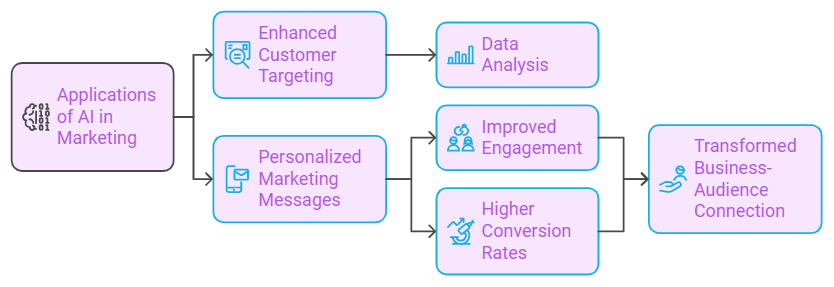
Essential Tools for Leveraging AI in Modern Marketing Strategies
Here are some tools designed for targeted email campaigns, effective campaign management, and optimizing conversion rates.
1. Skott
Skott is an AI-driven marketing tool that helps brands engage with their audiences more effectively. It stands out with its user-friendly features and advanced capabilities.
What Sets It Apart?
- Data-Driven Insights: Access deep analytics to understand customer behavior and tailor marketing strategies accordingly.
- Personalized Recommendations: Receive content suggestions that resonate with individual customers, boosting engagement.
- Seamless Integration: Easily incorporate it into existing marketing tools for a smooth transition without disrupting workflows.
- User-Friendly Interface: Enjoy an intuitive design that makes it accessible for marketers of all skill levels—no technical expertise needed.
- Real-Time Optimization: Monitor and adjust campaigns in real-time to maximize effectiveness.
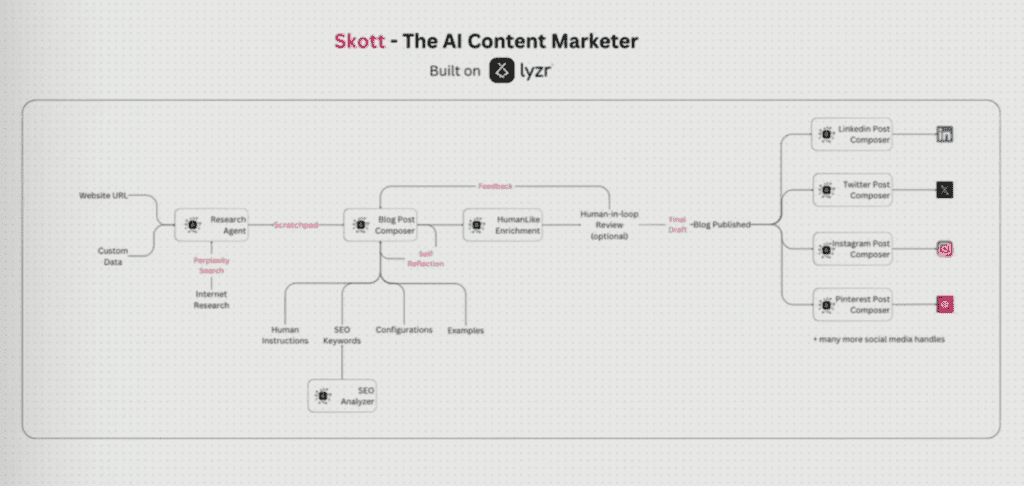
2. Zapier.ai
Zapier is like the Lego of tech stack and process integration, allowing you to connect and automate workflows across thousands of systems. It helps save time, boost efficiency, and cut down repetitive tasks. With Zapier, you can create custom workflows that link actions between systems, ensuring the right data is pulled from the right place every time.
These automations, called “zaps,” don’t require coding, and there are templates available to simplify the process. With over 3,000 integrations and the ability to create branching workflows based on your own criteria, Zapier makes automation easy and efficient.
3. Copy.ai
Copy.ai is designed specifically to automate sales and marketing tasks, offering a wide range of features tailored for copywriters. You can use it to create outlines, briefs, social media posts, and personalized marketing emails effortlessly.
With its user-friendly workflows, Copy.ai simplifies the process. Each workflow is crafted for a specific purpose, such as generating ideas for Facebook posts, making the entire experience seamless and efficient.
Features:
- Large prompt library
- Over 90 copywriting tools and workflows
- Summarize-to-brief tool to turn transcripts into content briefs
- Personalized email creator
- Automated content refreshing
4. Jasper.ai
Jasper.AI is a popular tool for copywriters built on the foundation of ChatGPT-3. It assists you in generating new content and enhancing existing pieces, seamlessly integrating into your current workflow.
You can create various types of written content, such as blog posts and emails, while also generating images to complement your campaigns. Jasper offers multiple styles for image creation, including photography, acrylic paint, and ink. However, it’s essential to review any images before posting, as it can occasionally produce small errors, like conjoined hands in images.
Features:
- Writing templates
- Google Docs integration
- Collaborative content calendar
- Prompt enhancer
- Plagiarism checker
Common Roadblocks in Implementing AI for Marketing
AI’s impact is clear, but it comes with its challenges, they must address risks like “hallucinations,” where AI provides confident but inaccurate responses, and potential biases that could skew outputs. While 34.1% of marketers have seen major improvements, 12.7% of marketers faced unexpected challenges during AI adoption, highlighting the risks that accompany its benefits.
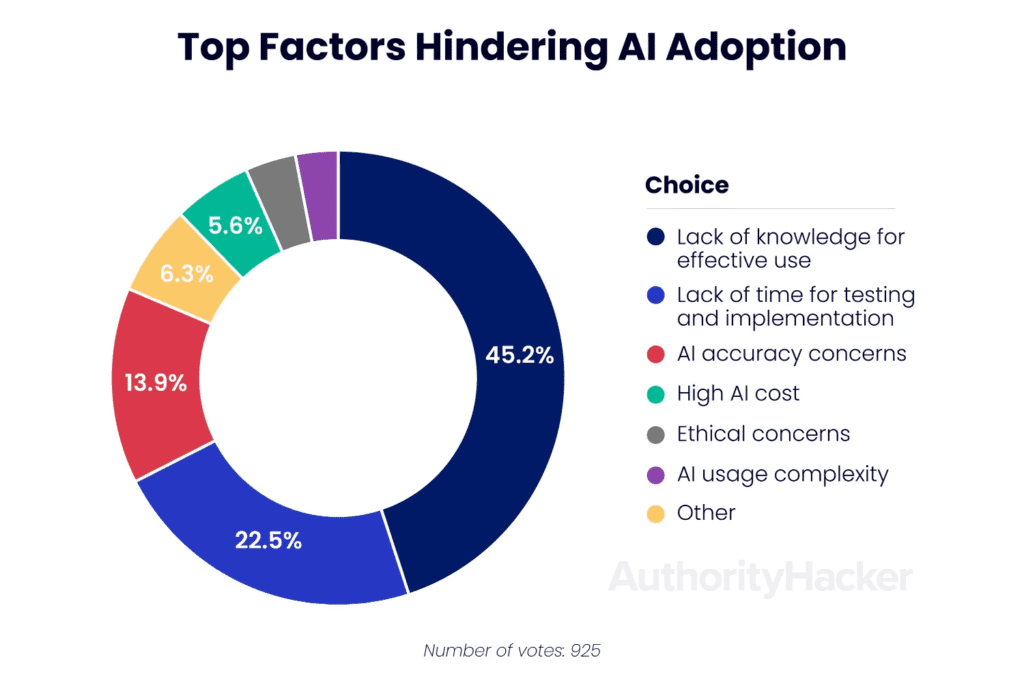
Content Quality and Accuracy
While artificial intelligence has advanced significantly, it still faces challenges in content quality. One major issue is factual accuracy—47% of marketers have reported receiving incorrect information from generative AI tools.
If you’re relying on AI to create content without human review, the quality may suffer. AI’s effectiveness depends on the data it is trained on, and without proper oversight, it may produce content with factual errors, bias, or an inconsistent tone that doesn’t align with your brand. To ensure high-quality output, human editing is essential in the content creation process.
Privacy
As marketing becomes more personalized, customers are increasingly concerned about privacy. Many AI-driven marketing strategies rely on tracking a customer’s online behavior, such as cookies and browsing history, to offer personalized recommendations.
If your marketing team is using AI tools to predict customer behavior, you must comply with privacy regulations, like GDPR, to protect user data throughout their customer journey. Ensuring transparency and respecting privacy will help build trust with your audience.
Copyright Concerns
With AI being a relatively new technology, its legal framework is still evolving. Generative AI is trained on vast amounts of public content, which means there’s a possibility it could generate material that closely resembles content from competitors.
Current copyright laws are focused on human authorship, making it unclear how much ownership you actually have over AI-generated content. To avoid potential legal issues, it’s important to review AI-created materials before using them publicly.
Evaluating Non-Quantifiable KPIs
Investing in artificial intelligence for marketing can sometimes be a tough sell, especially when it comes to non-quantifiable KPIs like brand perception or customer loyalty. Unlike traditional metrics such as conversion rates or ROI, these intangible factors are harder to measure but equally important. Gaining buy-in may require highlighting how AI can help target the right audience and enhance the customer journey over time.
Addressing Key Challenges in AI-Driven Marketing with Skott
Skott is an AI content marketer that sets you free from writing, researching, scheduling, or repurposing content. Let’s see how it helps to address the current challenges of adopting ai in marketing.
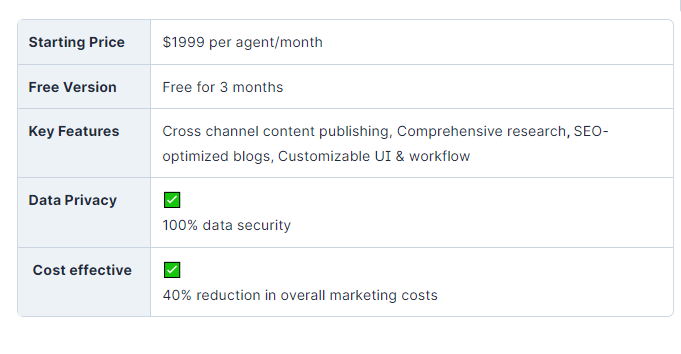
- 100% Data Privacy with Local Cloud Protection: Skott stands apart as the first fully private AI marketer, operating entirely on the local cloud. This ensures complete data security, addressing privacy concerns by eliminating the need to share sensitive information with third-party platforms.
- SEO Efficiency: Skott helps marketing teams write SEO-optimized blogs 70% faster. Its ability to streamline content creation ensures that businesses can produce high-quality, SEO-driven material in a fraction of the time, keeping up with the ever-changing search algorithms and delivering targeted results.
- Cost Reduction: With Skott, you save 240 hours in content creation per month with a 90% reduction in the cost of marketing resources. Plus, there’s a 200% increase in inbound leads within 6 months. By using Skott, expect a 15x growth in visibility across social media and search engines. This cost-saving extends across various tasks, including campaign management, audience targeting, and content production, helping businesses allocate resources more effectively.
- End-to-End Content Lifecycle Management: Skott supports the entire content lifecycle—from research and ideation to publication. By integrating every phase into one seamless process, it ensures a cohesive and strategic approach to digital marketing, optimizing both quality and efficiency while aligning content with broader business goals.
With Skott handling your content creation, your team can focus on scaling business, building relationships, strategizing, and creativity. Ready to create a data-driven content strategy that delivers results? Request your free Skott demo here.
Book A Demo: Click Here
Join our Slack: Click Here
Link to our GitHub: Click Here



